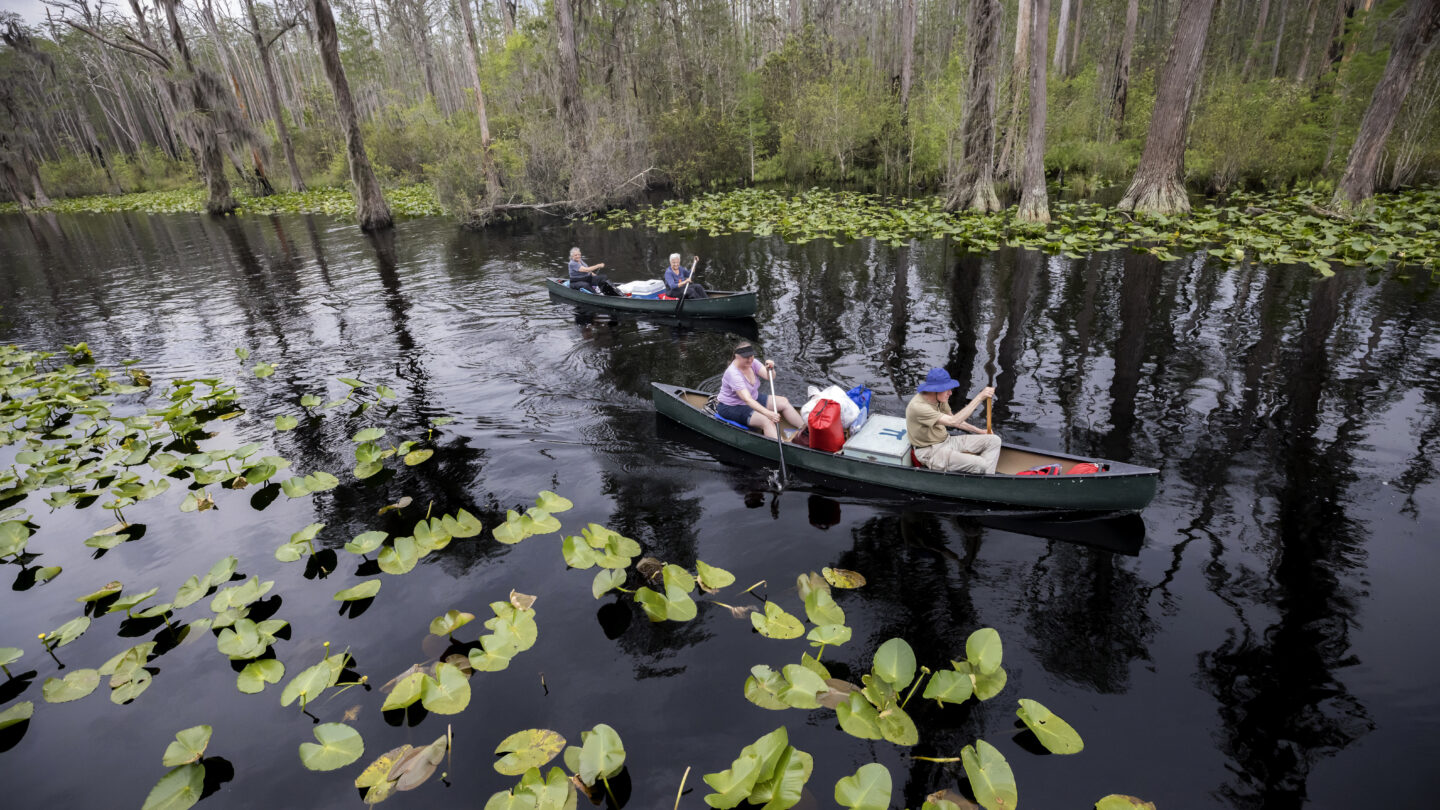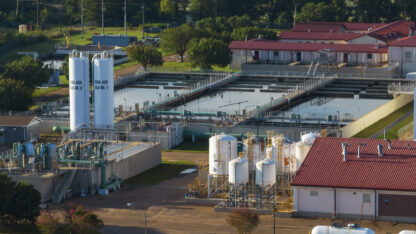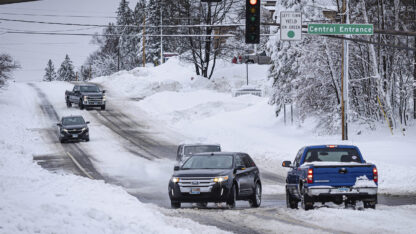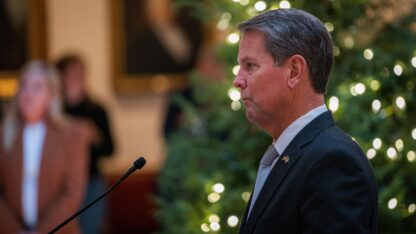1. The finances and future of nuclear power
When Georgia Power began building the two new nuclear power units at Plant Vogtle in Waynesboro in 2009, they were seen as part of a nuclear renaissance in the United States. The renaissance didn’t go as expected, and the Plant Vogtle expansion has ended up as the only commercial nuclear power construction project in the county.
The project is billions of dollars over budget and years behind schedule, but the first of the two new units at Vogtle is expected to go into service in the first quarter of 2023.
Once it does, Georgia Power customers will start seeing more nuclear costs added to their monthly power bills. That’s on top of the nuclear line item they’ve been paying since 2011, a rate hike approved by the Georgia Public Service Commission just before Christmas, and another expected hike early this year to cover the rising cost of coal and natural gas.
Beyond the impact on personal finances, we’ll also be looking at where the nuclear industry stands in the U.S., and where Plant Vogtle fits into the picture.
2. Where the rubber meets the road with electric vehicles
Georgia officials are eager to welcome electric vehicle manufacturing facilities and related industries — and all the jobs that come with them.
The two biggest economic development moves in state history, according to Gov. Brian Kemp, were the Rivian and Hyundai EV plant announcements in 2021 and 2022. Meanwhile, Georgia-based school bus manufacturer Blue Bird is ramping up its electric bus production.
But there are still a whole lot of questions to tackle as electric vehicles gain market share. Who builds public chargers, and where do they get built? As people switch to EVs, shrinking funding for the Georgia Department of Transportation from the gas tax (which has been on hold for months), how does the state make up the gap? Will state lawmakers give companies like Rivian the same carveout they gave to Tesla, allowing manufacturers to sell directly to consumers instead of going through dealerships?
A Georgia General Assembly joint study committee spent the last several months exploring the implications of the coming revolution in transportation, and there will likely be new policy coming in the legislative session that starts this month.
3. Mining near the Swamp
A proposal to mine for minerals near the Okefenokee Swamp has drawn intense criticism from environmentalists and scientists concerned about how the project — and others that might follow it — could affect the water levels and health of the ecosystem of the largest intact blackwater swamp on the continent. The president of the company behind the mine insists it’s safe.
The mine has been mired in shifts in federal water policy, from the priorities of the Obama administration, to those of Trump, and now to Biden. As it stands now, permitting for the project is up to the Georgia Environmental Protection Division, which is expected to release draft permits, triggering a public comment period ahead of any final decision.
4. How federal funding gets put to work
Between the bipartisan infrastructure law and the Inflation Reduction Act, there’s tons of federal money coming down the pipeline for government agencies, companies and regular old people.
A lot of that money, whether it’s in the form of tax credits, loans or grants, is aimed at climate initiatives. There are tax credits for solar panel manufacturers (the largest plant in the hemisphere is QCells’ facility in Dalton); tax credits for people who buy certain electric vehicles or energy efficient appliances; and rebates for school districts that buy electric school buses.
We’re interested in how that money shows up at the state and local level. Are communities getting access to funds they can use? Who’s benefiting, and where are opportunities being missed?
5. Climate solutions emerging in Georgia
Georgia doesn’t mandate action on climate change, but that doesn’t mean nothing’s happening here.
Beyond the EV factories and solar businesses in the state, medical students are learning about the health effects of climate change, military installations are testing more efficient air conditioners, local colleges are mapping Atlanta’s hottest neighborhoods and stores are finding ways to use less plastic.
People, businesses and institutions here are thinking about climate change, figuring out ways to help others and working to lessen their own impacts. We’ll keep following those stories.
This is part of WABE’s Storylines To Watch In 2023 series. Click here to see which storylines WABE reporters are watching on their beats — including arts and culture, criminal justice, education, health, housing, immigration and politics — so you’re in-the-know on what the year may bring.









